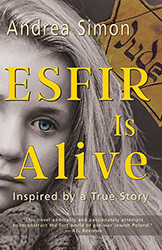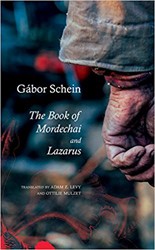Would you be guilty of complicity if you refused to select rounded-up Jews for physically atrocious labor, only to find out that with your non-choice you condemned them to their death later that day?
Would you earn the status of hero if you accidentally and reluctantly did not turn in two Jewish children on the run and, forced by circumstance, ended up leading them to eventual shelter?
Would you qualify as a hardcore Nazi if you had just deserted the Red Army under penalty of death, and signed on as an Auxiliary to the occupying German Wehrmacht in your Ukrainian village to obtain food, shelter, and the salary to buy seeds to rebuild your family farm burnt down by the retreating Russians? What if you were nauseated by the mass murders being committed and tried to run away, but were plied with alcohol and forced to participate — or else?
As with her previous novel, The Dark Room, Rachel Seiffert presents astute and complicated moral questions, and is careful not to provide clear answers. Her characters are drawn with great psychological complexity and nuance, challenging all customary stereotyping. As her characters, whose fates intersect dramatically, wrestle with responsibility, guilt, fear, betrayal, rejection, indifference, and compassion, so does the reader, who is immediately drawn into the ominous and predatory atmosphere of a small Ukrainian town in November 1941 at the start of the German invasion.
By now, the facts of the destruction of Jewish life and culture in Ukraine are well-researched. And yet, Seiffert capably offers a novel perspective to all the known facts: a minute to minute close-up of ordinary human beings in their ordinary contexts, being forced to make extraordinary, split-second decisions about life and death, their own and that of others. She imperceptibly invites identification with each of the individuals, no matter their role, begging the question of how we, the readers, would act today, if politicians proclaimed “getting rid” of a specific minority would be advantageous for the majority. There are reluctant heroes in Seiffert’s novel. Some survive, some don’t, by happenstance. However, nobody escapes being forever marked and altered by the events of those days. May we heed her warning.
Reinhild Draeger-Muenke left her native Germany as a young adult and has lived in the United States for almost 40 years. She is a psychologist and family therapist in the Philadelphia area, helping people heal from intergenerationally transmitted trauma.





